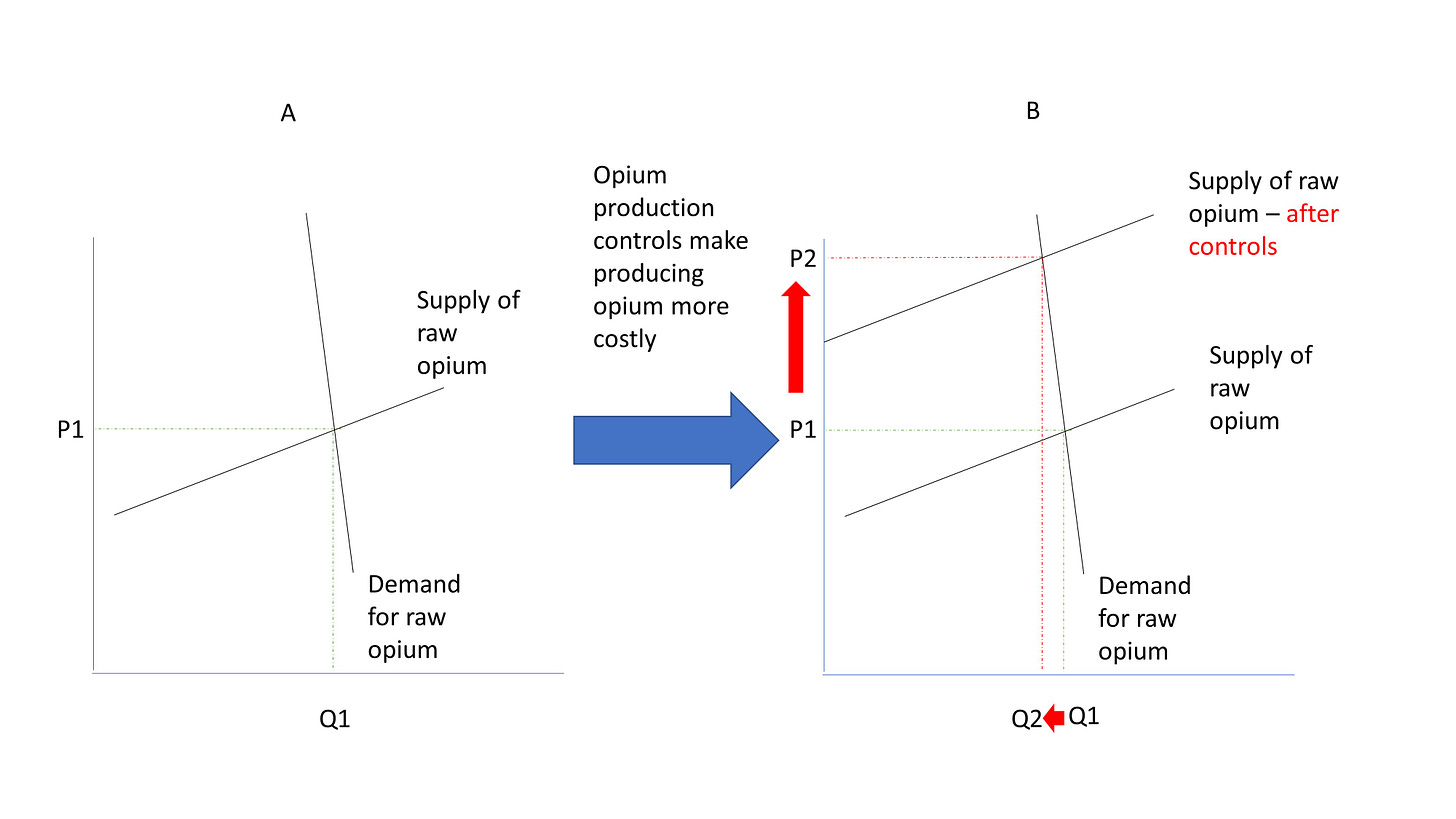Greetings from the University of New Hampshire! Last week was the first full week of classes here at UNH. We’re back in person, but all wearing masks. That’s a drag, but it is great to have everyone back in the classroom, and not messing around on Zoom.
And I’m back with you, here at RWL! I have to admit, I missed writing to you. I kept seeing things come across my feeds and thinking, “This would be great to share!” but then reminding myself I was taking some time off. Well, I’m back. So I have a bunch of great stuff to share with you. It’s been a rough month for America. My heart has been breaking thinking of the Afghan people who had hoped for progress toward a liberal society having it yanked away and being plunged back into 7th century barbarity. While our servicemen and women, especially our Air Force, performed miraculously during the evacuation, it is our politicians who have failed once again - and the failure is clearly bipartisan. I pray we get some better leaders soon, but a democracy gets the leaders it deserves - so I hope we can collectively be better.
I have a few articles tied to this theme. The Christensen video addresses short-term vs. long-term thinking, which I think is at the heart of our challenge. I also have an interview by Bari Weiss with the amazing Niall Ferguson on decline as a choice. I have an illustration of the erroneous economic thinking that has plagued the Afghan war from the Modern War Institute. And then there are several other good pieces. I’m afraid there isn’t a lot of positivity in this newsletter, even though I really am glad to be talking with you again.
So on a happy note, since I last talked to you, I acquired an inflatable stand-up paddle board (iSUP). I’ve been loving this new interaction with the water - to the exclusion of my kayaks lately. I was initially skeptical of the iSUPs, but I have to say I am totally a fan now. Cheap, portable, light - they are easy to transport and easy to use. I took the above pic this morning on the Lamprey River in Newmarket. It was a stunning late summer morning. It really doesn’t get any better than that. And that is the thing to remember. As Gandalf once said,
You don’t really suppose, do you, that all your adventures and escapes were managed by mere luck? Just for your sole benefit? You’re a very fine person, Mr. Baggins, and I’m quite fond of you. But you are really just a little fellow, in a wide world after all.
It’s good to remember we are all just little fellows in a wide world. All we can do is our best to be the best people we can be and hope that is enough.
Enjoy the links and stay well!
**
Read
What: HBR Ascend, How to Follow Up With Someone Who’s Not Getting Back to You
https://hbr.org/2021/01/how-to-follow-up-with-someone-whos-not-getting-back-to-you
Why: HBR’s Ascend is a great curated set of articles for early careerists, or written specifically for early careerists. This article is a good example of the basic, straight-forward career advice Ascend focuses on. The article is useful, as is the series.
**
What: Modern War Institute, An Unforced Error: How US Attempts to Suppress the Opium Trade Strengthened the Taliban
Why: Among our various failures in Afghanistan, one was to reduce the amount of opium produced by Afghan farmers. This short article provides a critique, to include:
Afghanistan is also central to the global trade in opiates. In 2019 and 2020, the UNODC’s estimates put Afghanistan’s output at a remarkable 85 percent of global opium production. Afghanistan’s estimated share of global production has remained fairly stable over the last two decades.
The problem is the cost contribution of the raw opium coming out of Afghanistan was a tiny portion of the final sale price of the heroin sold on the street in your home town - let’s say it’s a few cents on every dollar. As a result, the demand for Afghan opium is inelastic - meaning, the change in percent demanded changes much less than the percent change in price. For example, if the price of raw opium goes up 100%, the demand for raw opium only goes down, say, 5%. A couple of supply and demand curves are in order.
In Panel A you can see the starting point for the price and quantity for raw opium out of Afghanistan. Panel B is what happens when our policies raise the cost of producing raw opium. An increase in cost of production results in a left shift of the supply curve, representing higher costs of production at all quantities. However, our focus on the producers has no impact on the consumers of street drugs back in your hometown. The result is the same demand curve and a much more costly supply curve, which generates much higher prices to Afghan farmers. The small change in quantity represents the farmers who feared US-led punishment, offset by the much larger group of Afghan farmers who saw even bigger paydays for producing opium. The net effect is very little reduction in quantity, and much more money flowing into producers (protected by and paying taxes to the Taliban).
Yay for prohibitions - they almost never work.
**
What: WSJ, ‘Stakeholder’ Talk Proves Empty Again
Why: I have been a fan of Bebchuk’s work since I did my PhD work back in the late 00’s. He always provides great insight into corporate governance. In this case, he and his co-author take a look at some of the latest empty signaling on “stakeholder” theory - the idea that corporate leaders should be answerable not just to shareholders (actual owners) but anyone who has a “stake” in the firm - employees, customers, communities, etc. Stakeholder theory is bad economics in my opinion, so I’m glad companies are just using it as a smoke screen.
**
What: OD Practitioner, Driving culture transformation during large-scale change
https://cdn.ymaws.com/www.odnetwork.org/resource/resmgr/odp45_3/vol45no3-heckelman_et_al.pdf
Why: Well-written article discussing how to drive change. It mirrors my Hard Way model of leadership, looking at the individual, team, and organization, so I like it. The authors present a straight-forward model with useful tips. I came across this article while I was doing some research for a forth-coming article on a Culture of Mentorship (more on that later)
**
Watch
What: Clay Christensen at TEDxBoston, How Will You Measure Your Life?
Why: I have shared this video by Clay Christenson, who is famous for his book The Innovator’s Dilemma in which he popularized the idea of disruptive innovation. In this video he applies various business theories to how we should live our lives, including his own. I asked my seniors to watch this video to prepare for our first session of our post-practicum course where we discuss what they learned during their internship and begin to think about what they want to do post graduation. Christenson makes the argument that we focus too much on short-term success as measured by income and career advancement, and not enough on long-term, life success - such as having a successful marriage and raising our children. It’s a very good reminder that the things that are most important are often the easiest to set aside. It’s a video worth watching once a year, or so. So I will probably share it again.
(BTW - he had suffered a stroke prior to recording this video, so he walks with a cane, and his speech isn’t perfect)
**
Listen
What: Honestly with Bari Weiss, American Decline Is a Choice. Let's Not Choose It.
https://podcasts.apple.com/us/podcast/honestly-with-bari-weiss/id1570872415?i=1000533972638
Why: Weiss interviews the famous historian Niall Ferguson about American decline. Ferguson has recently written a book called Doom: The Politics of Catastrophe in which he explores how civilizations fall. I have not read Doom yet, but I loved his book The Ascent of Money, which is an absolutely brilliant history of money and civilization.
With the debacle in Afghanistan and our strategic competitors making hay at our expense, it was useful to listen to this interview. Perhaps the key point is that the fall of a civilization is not a forgone conclusion the way that natural phenomena happen. Civilizations are social constructs and can last as long as their institutions can last. Right now our institutions are being challenged on the Left and Right as political opportunists seek short-term gain at the expense of society.
I continue to be amazed by Weiss’ talent as a writer and interviewer. I am so glad she turned her back on the NYT because I never would have heard of her. It’s too bad that the NYT has become the home of many of the political opportunists seeking short-term gain at the expense of our country.
**
What: First Person Plural: EI & Beyond, Building Emotionally Intelligent Teams with Dr. Vanessa Druskat
Why: I enjoyed listening to this interview with Dan Goleman, who did more to popularize emotional intelligence than anyone else I am aware of, and my colleague Vanessa Druskat, who works on the concept of emotionally intelligent teams. I have sat in on several classes taught by Vanessa and I can tell you she is really a master teacher. But also her work is fascinating. I came to it thinking that emotionally intelligent teams would involve training up emotionally intelligent team members, but that isn’t the case at all. The emotional intelligence of teams is embedded in the institutional structure of the team, not in the individuals.
I also enjoyed this interview because I have had Vanessa on my podcast as a guest, so it was interesting to listen to someone else interview her and hear the differences.
Thanks for reading and see you next week! If you come across any interesting stories, won't you send them my way? I'd love to hear what you think of these suggestions, and I'd love to get suggestions from you. Feel free to drop me a line at mark.bonica@unh.edu , or you can tweet to me at @mbonica .
If you’re looking for a searchable archive, you can see my draft folder here: https://drive.google.com/drive/folders/1jwGLdjsb1WKtgH_2C-_3VvrYCtqLplFO?usp=sharing
Finally, if you find these links interesting, won’t you tell a friend? They can subscribe here: https://markbonica.substack.com/welcome
See you next Friday!
Mark
Mark J. Bonica, Ph.D., MBA, MS
Associate Professor
Department of Health Management and Policy
University of New Hampshire
(603) 862-0598
mark.bonica@unh.edu
Health Leader Forge Podcast:
http://healthleaderforge.org
"Were there none discontented with what they have, the World would never reach anything better." - Florence Nightingale





